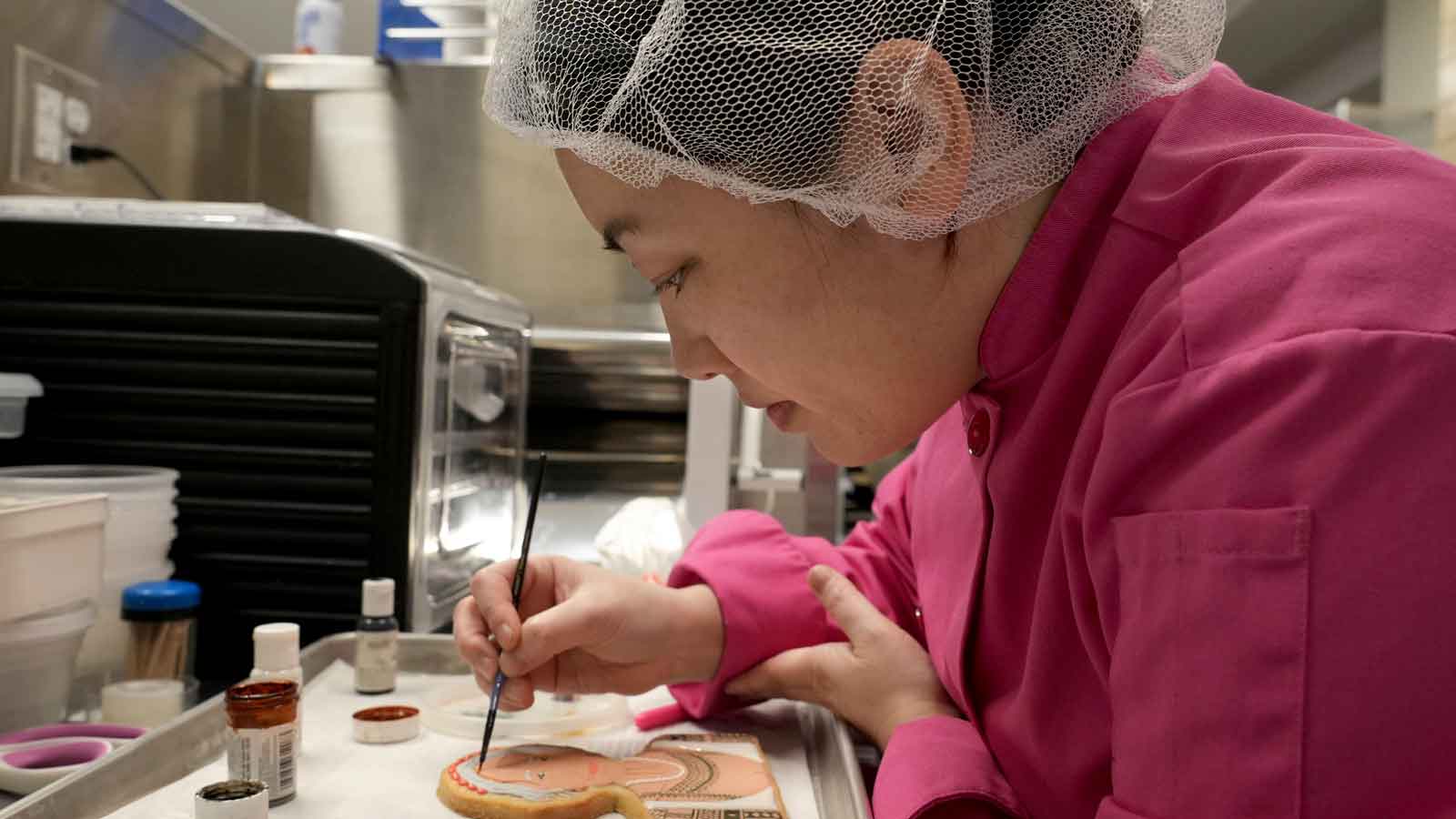Fear, shame, and a lack of reliable data are just a few of the reasons sexual violence committed against Asian American and Pacific Islander women in the U.S. is likely more pervasive than once thought, according to advocates.
“Our [AAPI] community doesn't know how to respond and we don't talk about it,” said Monica Khant, Executive Director of the Asian Pacific Institute on Gender-Based Violence. “There needs to be that intent and thoughtful focus on serving survivors from the communities that they come from because if you lose that, then you're not really responding to their needs and some of the challenges that they face.”
Our [AAPI] community doesn't know how to respond and we don't talk about it.
Monica Khant, Executive Director of the Asian Pacific Institute on Gender-Based Violence.
Khant, a former immigration attorney who represented asylum seekers, has helped hundreds of sexual violence survivors over the past two decades.
Get a weekly recap of the latest San Francisco Bay Area housing news. Sign up for NBC Bay Area’s Housing Deconstructed newsletter.
“For many years, gender-based violence in the AAPI community has been guided by not talking about it because of shame, because of isolation, because of the impact that it would have had on their families,” she said. “There's a strong sense of family honor, with that comes family shame.”
One in six AAPI women in the U.S. reports being raped in her lifetime, while one in five report suffering any kind of sexual violence, according to surveys conducted by the CDC. The prevalence of rape against AAPI women has increased 8 percent since 2017.
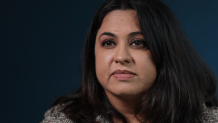
'Why Me?'
“I want other young Asian-American women to know that there are others out there,” said Irene Cho, 48, a sexual violence survivor who says she was raped by one of the pastors of her church when she was 19-years-old. “Back then, I didn't value who I was -- I didn't know the worth of all of who I am.”
Cho, who lives in Oakland, is a California native, but her family immigrated from South Korea and taught her to revere her elders, especially those in the church.
“There are parts of my culture that I absolutely cherish and love,” Cho said. “Being part of the AAPI community, I do cherish how we respect our elders, but I do not cherish how that is used to manipulate young people to simply obey without question.”
Being part of the AAPI community, I do cherish how we respect our elders, but I do not cherish how that is used to manipulate young people to simply obey without question.
Irene Cho, sexual abuse survivor
Cho believes her abuser used her own cultural upbringing as a weapon to victimize and prey upon her.
“I didn't want to bring shame upon him, which is so stupid,” she said. “Now, as I look back –and I don't mean that insulting me or degrading me, but I, again, wish I could shake my young person to say, ‘you matter more than he does. Your dignity matters."
Cho says she waited more than a decade before publicly sharing her story of abuse.
"The questions of why began," she said. "Why? Why me?"
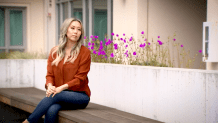
Rise in anti-Asian Hate Met with Waves of Support
In California, hate crimes against Asian Americans increased by more than 177 percent in 2021, according to a report from the California Attorney General's Office released last year. While the pandemic gave rise to racist hate speech and violent attacks against Asians, that extremism also spurred communities, nationwide, to speak up and stand alongside Asian Americans. Advocates believe those efforts, paired with the ongoing #MeToo and #ChurchToo movements, have recently given some victims the courage to come forward and seek the care and services they need.
The Asian Women’s Shelter in San Francisco received more than 2,000 requests last year from survivors and their children to join local support groups.
Also last year, Korean American Family Services, commonly known as KFAM, received 50 percent more requests from survivors seeking support.
The Sikh Family Center, which operates nationwide, says calls to its sexual violence crisis hotline spiked 160 percent in just two years.
AAPI Survivors Often Lumped Together Despite Varying Cultural and Ethnic Backgrounds
While Khant acknowledges the issue of sexual violence is now being discussed more frequently, she says it is still not brought up nearly enough. She says part of the difficulty in understanding the impact of sexual violence is AAPI survivors are often all lumped together into a group comprised of roughly 50 counties and more than 100 languages.
“So when you create a perception with broad strokes, you're missing some of the nuances happening,” Khant said. “You're only talking about part of the story and really erasing the rest of it.
For example, domestic abuse rates in the U.S. for Chinese and Japanese victims are fairly similar, however, rates for Korean, Indian, and Filipino, and Vietnamese survivors are roughly double.
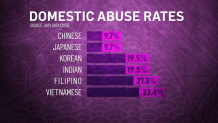
Khant adds that even when data is available, it may still be incomplete since culturally, AAPI survivors may be particularly hesitant to share their stories.
“That also contributes to just not knowing when this happens in our communities,” she said. “When people are not speaking up or speaking out about the violence in our community that has happened, that data point is skewed.”
We are very communal, but often our community is based on what brings shame and what brings honor, which doesn't always expose truths.
Nikole Lim, a Chinese American, who heads the nonprofit Freely in Hope, which aims to end the cycle of sexual violence
The nonprofit Freely in Hope works to empower survivors of sexual violence by providing them education and counseling. The work is focused in Kenya and Zambia and was started by Nikole Lim, a San Francisco Bay Area native, who first witnessed the impact of sexual violence as a documentary filmmaker abroad. She eventually decided to put down her camera in hopes of capturing real change.
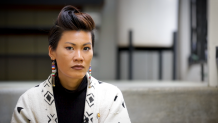
"What I've experienced in my context of working in Africa is survivors are coming together to create their own communities of belonging, where they know that they're not alone,” she said. “There are similarities in the stories of pain, as there are similarities in the stories of healing and when those healing stories can be shared, I think that's how survivors can move forward together.”
On June 17, sexual violence survivors and advocates, including Lim and Cho, will take part in 'Redeeming Sanctuaries,' a panel discussion in San Francisco centering around abuse in the church and what church leaders should be doing to prevent it. Senior Investigative Reporter Bigad Shaban, who is a volunteer board member of Freely in Hope, will moderate the discussion. Click here to learn how to reserve tickets.
In her book, ‘Liberation is Here,’ Lim recounts what she’s learned after spending more than a decade walking alongside sexual violence survivors in Africa. As a third-generation Chinese American, she says the experience has pushed her to explore her own cultural upbringing.
“One of the priorities for Asian communities is …we are very communal, but often our community is based on what brings shame and what brings honor, which doesn't always expose truths,” Lim said. “I think I think that's the gift of storytelling when we can tell our stories from our own nuanced perspective – that's where healing can begin."
Contact The Investigative Unit
submit tips | 1-888-996-TIPS | e-mail Bigad


